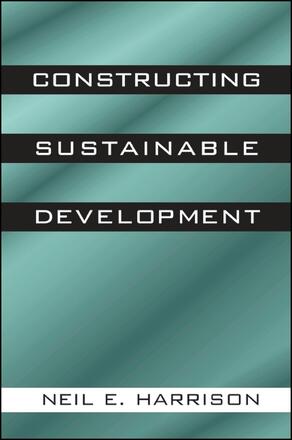
Constructing Sustainable Development
Alternative formats available from:
Defines, analyzes, critiques, and proposes new policy solutions for achieving sustainable development.
Description
Through a critique of the economic, technological, political, and ethical theories that are the basis for current policy, this book shows that sustainable development proposals are at least incomplete or impractical and at worst dangerously misleading.
The concept of sustainable development presents a problem for theorists and policy makers because it cannot be objectively defined and subjective understandings vary widely. For the capitalist, sustainable development is a problem of production efficiency and technological innovation; for the environmentalist, a more appropriate ethic is a necessity; and for the developing country policy maker, a more equitable distribution of power over resources is imperative.
Harrison shows how sustainable development can be constructed from policy principles derived from ongoing adaptations to changes in values, beliefs, and scientific knowledge, and applied in both developed and developing nations and communities large and small.
Neil E. Harrison is Assistant Professor of Political Science at the University of Wyoming.
Reviews
"The book takes on a challenging topic. It is written concisely. Harrison has a broad command of the literature and it shows in the presentation and analysis. His approach is generally effective in exposing some of the central dilemmas and problems of the search for sustainable development. Harrison uses postmodernism with a notable degree of effectiveness in the analysis. The analysis of the different sustainable development narratives generates a number of important insights. The book is stimulating and thought-provoking." — Brian J. Cook, author of Bureaucracy and Self-Government: Reconsidering the Role of Public Administration in American Politics
"Given the growing attention to sustainable development, this book will find a home on many shelves within the scholarly community and more broadly in the environmental policy community and the lay public. Its readability makes it accessible to a broad audience, and I expect the book will be assigned in many undergraduate environmental studies programs." — Dennis Coyle, author of Property Rights and the Constitution: Shaping Society through Land Use Regulation